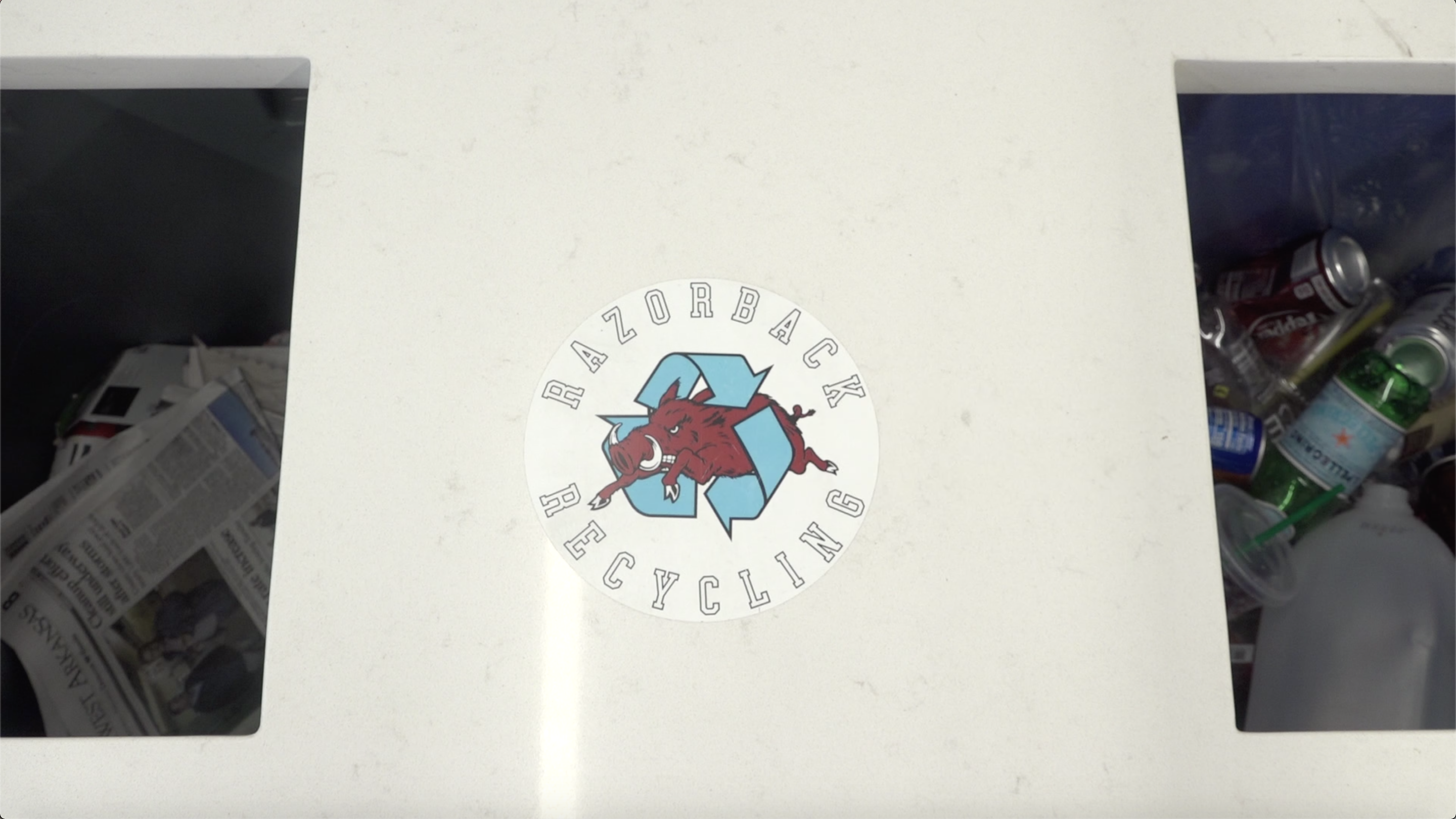By: Haley Berley
FAYETTEVILLE, Ark – Around 91 percent of plastic items placed into a recycling bin ends up in a landfill with non-recyclable garbage, National Geographic reports.
The calculations of what actually ends up being recycled draw attention to the volume of plastic waste people produce. Ultimately they end up everywhere except a recycling center. For Fayetteville resident Casey Estes, creating a change means living on nearly zero waste and making things at home.
“It’s been a really long learning process, for us to get to this point and it is a lot of work. It’s political and it’s environmental…It’s a hard [point] to sell because we live in an economy that is all about growing, and in order to do that we have to mine resources, we have to make products and consume them.”
Coordinating Intern Sophie Hill at the Office of Sustainability sees substantial progress here on campus. She said that legislators try to see every angle when enacting environmental policies.
“I don’t think sustainability is a political issue, I don’t think it should be. It’s a bipartisan issue…Legislators take into account every perspective possible, the social ones, economic, political like really trying to hit every tenet to get something to pass.”
Cities like Fayetteville are trying to take initiative on issues like these to raise awareness on the environment as well. The Fayetteville City Council unanimously voted on May 21, 2019, to ban the purchase of styrofoam with city funds.


